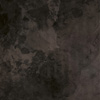William Fowler Collins, "The Resurrections Unseen"
 I basically enjoyed Williams' acclaimed 2009 dark ambient opus Perdition Hill Radio, but did not find it especially revelatory or unique.  This follow-up is an entirely different story though: The Resurrections Unseen marks a huge compositional leap forward.  As expected, the mood is similarly blackened and ominous, but this effort is significantly more focused, artfully structured, visceral, and slow-burning than its predecessor: this is a rumbling, album-length plunge into the void rather than a mere series of crackling and brooding soundscapes. Fowler Collins has delivered an instant genre classic.
I basically enjoyed Williams' acclaimed 2009 dark ambient opus Perdition Hill Radio, but did not find it especially revelatory or unique.  This follow-up is an entirely different story though: The Resurrections Unseen marks a huge compositional leap forward.  As expected, the mood is similarly blackened and ominous, but this effort is significantly more focused, artfully structured, visceral, and slow-burning than its predecessor: this is a rumbling, album-length plunge into the void rather than a mere series of crackling and brooding soundscapes. Fowler Collins has delivered an instant genre classic.
Trying to pin down the difference between "good" and "bad" dark/black ambient has always been a very difficult task, as pretty much anybody with a good laptop can throw together a passable soundscape of cold, deep drones and distantly echoing crackles and scrapes.  The tricky part is making the leap from an endless, forlorn-sounding cavernous throb into something a bit deeper and more chilling.
Fowler Collins seems to have figured out the mysterious variables necessary for that evolution and employs his new-found wisdom to great success here.  I'm especially fond of his tactic of combining a deep and gradually intensify rumble with grinding, subtly pitch-shifting dissonance, which he does with "Premonitions at Dusk."  The album's best moments, however, come when William weaves layered soundscapes of blurry, ghostly-sounding synthesizers that queasily undulate and clash with each other.  The closing "Ghost Choir" is probably the most impressive and unsettling example of this, but "Warm Transport" is pretty spectacular as well.
The Resurrections Unseen wouldn't work nearly as well as it does, however, if Fowler Collins hadn't paid such close attention to the big picture: this is a beautifully coherent, thoughtfully paced, and well-sequenced album.  A few pieces, like "The Light In The Barn," and sections of the two-part "Embracing Our Annihilation" contain lengthy lulls that could be dull or momentum-killing in the wrong context.  Here, however, they are uneasy oases in a masterful album-length ebb and flow of tension and disquiet.  No passage ever overstays its welcome and William is careful to vary his dynamic attack to make each new section seem meaningful and fresh.  That emphasis on shifting dynamics is particularly effective near the end of the album, as the second half of "Embracing Our Annihilation" jacks up the low frequencies to a speaker-shuddering crescendo before giving way to the haunting, album-closing shimmer of "Ghost Choir."
Fowler Collins never makes a false, clumsy, or unnecessary move for The Resurrections Unseen's entire duration and the cumulative power of its simmering build-up is pretty amazing.  This is about as perfect, absorbing, and immersive as an ambient drone album can be.  Efforts like this and Xela's The Sublime make a strong case that an unlikely second golden age of dark ambient may be upon us.
Samples:
 



